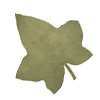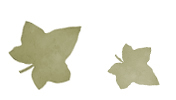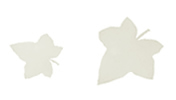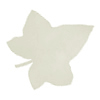|
Composting - it's easy!
by Hannah Corr
What
is composting?
Composting is the recycling of kitchen and garden
waste to produce a soil like material that is rich
in minerals and nutrients. It can then be put back
into the earth to feed the soil and make the garden
grow better. Any natural product such as fruit,
vegetables, wood & wool will slowly rot and
decompose over time and composting is a way of speeding
the process up by using the right mixture of materials.
It is made by a hundreds of different organisms,
including bacteria, fungi, worms, and insects eating
away at it over a period of time. Sounds gruesome
but what remains after these organisms break down
the organic materials, is the rich, earthy substance
your garden will love. Composting is nature's natural
way of breaking down materials, be it on the forest
floor or in your compost bin.
Why compost?
There are lots of good reasons to compost -
It will dramatically reduce the size of the rubbish
bag you leave out for the bin man each week
It reduces the amount of household waste being sent
to landfill sites
Which in turn cuts down on pollution
It will stop your kitchen bin from smelling
You’ll have a constant supply of quality, healthy,
chemical free fertiliser for your garden and plants.
Give it to your friends if you don’t need it!
It will save you money by not having to fork out
for fertilisers anymore
It helps protect our beautiful peat bogs. Many commercial
composts are made from peat, which is naturally
occurring and extremely rich in nutrients for plants
and soil. However, peat bogs are thousands of years
old and provide natural habitats that are even rarer
than the tropical rainforest. As such peatbogs are
considered a protected environment.
How to Compost
You can be as lazy or as active as you like. The
more you manage your compost the faster you’ll
produce compost ready to be used in the garden.
If you take the passive approach where you slowly
and steadily add waste to a pile you’ll still
see results but they’re likely to be in a year
or two. Either way, it ends up the same! Anything
natural that will rot & decompose will compost.
Grass, trees, vegetables, fruit peel, brown paper
and even the dust in your hoover can go on the pile.
The easiest and most common way is ‘cool composting’.
First you need to get a compost bin or site set
up in your garden. Find a nice sunny spot with plenty
of heat and light and place your heap or bin on
a patch of soil or concrete (preferably soil but
concrete’s just as good - worms and insects
will always manage to find it!). Start adding your
compostables - it is best to use a mixture of ingredients
to get a balance of dry & wet but don’t
worry if this sounds daunting, it will come in time
and with experience. Here’s a helpful outline
-
BULK & BALANCE
Raw fruit & vegetable scraps, tea bags, old
flowers, soft prunings, weeds, straw & hay
HOUSEHOLD ROTTERS
Egg boxes, cardboard, paper bags, kitchen roll &
serviettes
HOT ROTTERS (these work to ‘activate’
the compost process and get it started)
Weeds, grass cuttings, comfrey leaves, nettles and
urine (dilute 1:4)
SLOW ROTTERS (will decay over a long time)
Autumn leaves, wood chipping, woody prunings. Older
and often therefore, tougher material takes longer
to decay but gives the compost a good quality. Wood
decays very slowly and is best chopped or shredded.
BEST AVOIDED
Cooked food, meat, poultry & fish (raw or cooked),
dairy products, bread
NO NO’S
Coal ash, dog poop, nappies, cat litter and glossy
magazines
After about 6-9 months the bottom of your compost
pile will have turned into a lovely rich soil like
substance. Remove it from the compost bin and either
bag it or use it in the garden straight away.
Have fun but beware - composting is addictive!
"Composting.
It's Easy!" © H.Corr 2005 - Republished
here with kind permission. |
|












